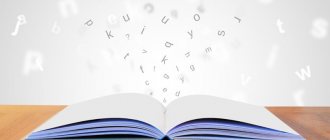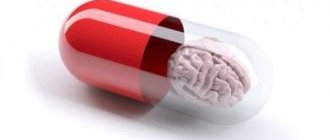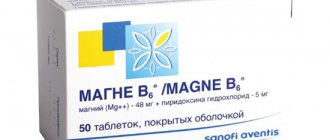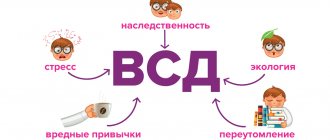Pros and cons of treatment
Benefits of therapy:
But this method of therapy has its disadvantages:
- some medications with anticonvulsant effects reduce concentration;
- weight gain;
- tranquilizers lead to drowsiness or insomnia;
- allergic reactions to drugs, especially in adolescents;
- migraine;
- mental inhibition;
- addiction to medications.
All presented medications for the treatment of stuttering are effective only if they are used as part of complex therapy.
Only a doctor can prescribe the dosage and duration of use after examining the patient and making a diagnosis.
Medications for logoneurosis for children, adolescents and adults
Calming (sedative)
Using these remedies, you can eliminate nervous tension, relax muscles, relieve excess anxiety and reduce the psychological factor in the manifestation of symptoms.
Novo-passit . It is a sedative herbal medicine that can be used as a sleep aid.
The drug contains dry or liquid extracts of valerian, lemon balm, St. John's wort, hawthorn, hops and elderberry.
It has anxiolytic, sedative and anti-anxiety effects. Approved for use by adults.
- Tenoten. It is a mild sedative and anti-anxiety drug. The medication is available in general and pediatric forms. Approved for use by children from 3 years of age.
- Motherwort forte . This is not a medicine, but a dietary supplement. Has a sedative effect. Used as a sedative for children of any age. Sold in tablet form. Motherwort tincture when diluted with water is allowed for children over 7 years of age.
Psychostimulants
These drugs are designed to increase activity, alertness and reduce fatigue. Effective means:
- Modafinil. Available in tablet form. Promotes enhanced brain function. Even long-term use of the drug will not lead to dependence or the development of pronounced side effects. Allowed for admission from 16 years of age.
- Phenotropil. It is a powerful psychostimulant that causes a surge of strength and energy. But long-term use will lead to the development of drowsiness and severe aggressiveness. Contraindicated for children under 18 years of age.
- Adderall. This product is approved for children from 3 years of age. When taking it, a surge of strength is achieved, and psychological dependence is also possible.
Neuroleptics
Necessary for reducing the transmission of nerve impulses in those areas where the neurotransmitter dopamine is responsible.
When speech is impaired, dopamine hyperactivity is observed, so taking antipsychotics can significantly reduce speech impairment.
If the dosage is not observed, heart pathologies and tachycardia may develop. The drug has an antidepressant effect, therefore it is effective for stuttering and psychosis.
Nootropics
These are drugs that have a specific effect on the higher functions of the brain.
Nootropics activate the central nervous system, stimulate its performance, increase intelligence and improve memory.
In addition, the resistance of nervous tissue to various negative effects, overloads and lack of oxygen increases.
Shall we give you some tea?
Some say that tea (or coffee) can make stuttering worse. Others believe that caffeine has a good effect on speech. Still others argue that these things are not connected at all.
I tried to figure out how it really is
Caffeine, which is part of tea and coffee, can increase stress levels, that is, cause even greater speech tension. Therefore, some people who stutter are advised to drink less of this stuff.
And it seems that the advice is valid and works.
But, on the other hand, there are stories of people who stopped drinking this very tea and coffee
and began to speak worse than before.
And in general, many stutterers do not observe a direct connection between tea and coffee
and their own stuttering.
It rarely happens that someone drinks tea and begins to stutter more; sometimes it works the other way around: he drank tea and began to speak better. In short, it’s some kind of crap: the issue with caffeine is quite ambiguous.
To figure out what’s going on in our little heads, we need to take a short scientific excursion. In general, the topic is this: when we drink tea and coffee, a lot of dopamine is formed in the brain and it can somehow affect our speech.
What is dopamine
Dopamine
is a hormone, or more precisely, a neurotransmitter. A neurotransmitter is a thing that helps electrical impulses travel between neurons. And unlike hormones, neurotransmitters are not released into the blood, but into the space between neurons.
Well, we know that all our thoughts, sensations, and memories are the result of current running between neurons in the brain. This very current moves through neurotransmitters (of course, in reality everything is a little different, but that’s the essence :)).
There are many different neurotransmitters: dopamine, acetylcholine, serotonin, norepinephrine and others. Depending on the type of neurotransmitter, impulses can travel at different speeds, in different ways, and generally to different areas of the brain.
Therefore, we feel differently and make different decisions. More precisely: the brain makes decisions or generates certain types of physical sensations.
Do you need dopamine?
in order to: a) Make us move and achieve our goals. b) We experience the joy of searching for something new and get high when we do something important and useful for our survival.
c) And for many other reasons
And it seems that dopamine does not directly affect any speech centers or stuttering. But at the same time, in the stuttering community there are different opinions on this matter.
Stuttering and dopamine
There are two theories regarding the relationship between dopamine and speech cramps, which at first glance seem to contradict each other.
According to one theory, stuttering occurs due to increased levels of dopamine in the brain and it is necessary to keep its levels under control. According to her, there is too much dopamine in the brain of a stutterer, which causes mental stress and leads to stupor.
According to another theory, stutterers have too little dopamine, which leads to malfunctions in the speech mechanism. Since caffeine intake increases dopamine levels in the brain, it has a positive effect on speech. In short, as usual, there is no simple answer.
Two extremes
Along with the two dopamine theories, there are two extremes.
First
: generally give up all drinks with caffeine, so as not to once again provoke stupor and overexcitation of the nervous system.
Second
: drink tea and coffee in unlimited quantities to speak better. As always, the best path lies somewhere in the middle.
As they say in Buddhism: “the path to perfection is the middle path, without extremes.”
Simply put, tea and coffee affects mood, not speech. And then it’s simple: it’s easier to speak in a good mood than in a bad one. The main thing to remember in these attempts to improve your mood is that:
- Mood is indeed one of the important factors that influences the way we speak - but not directly, but indirectly.
- Speech also depends on a bunch of other things: genetic predisposition, physical condition, stress level and the original nature of stuttering.
It should be taken into account that the nervous system of a stutterer is quite receptive and it is easier for him than for an ordinary person to go too far with caffeine - this leads to unpleasant excitement, attempts to choke on his words and the desire to express all his thoughts at the same time. Therefore, it is important to pay attention to this and not shake your emotional state too much.
Personal experience
I can’t remember that I somehow purposefully limited myself or, on the contrary, drank tea and coffee specifically to reduce my hesitations.
True, it happened that when I wanted to drink another cup of strong tea, I said to myself, “No, that’s enough, otherwise I’ll speed up too much.” I am not a fan of this slightly inflated state; for me it is a resource.
The basic resource state is calm self-confidence and emotional stability.
Remember
- Tea and coffee can affect mood, and mood, in turn, affects speech.
- People with a sensitive and unstable psyche need to be careful with caffeine-containing drinks: from just a good mood you can suddenly swing into overexcitement with all the ADHD syndromes.
Links
Don't press the pedal or the greatest dopamine deception of the brain Caffeine and stuttering - another paradox? The dangerous effects of caffeine on fatigue
Source: https://zen.yandex.ru/media/id/5b963295c4ee7000a945d841/5c7d4df84bdc1900b31d407a











